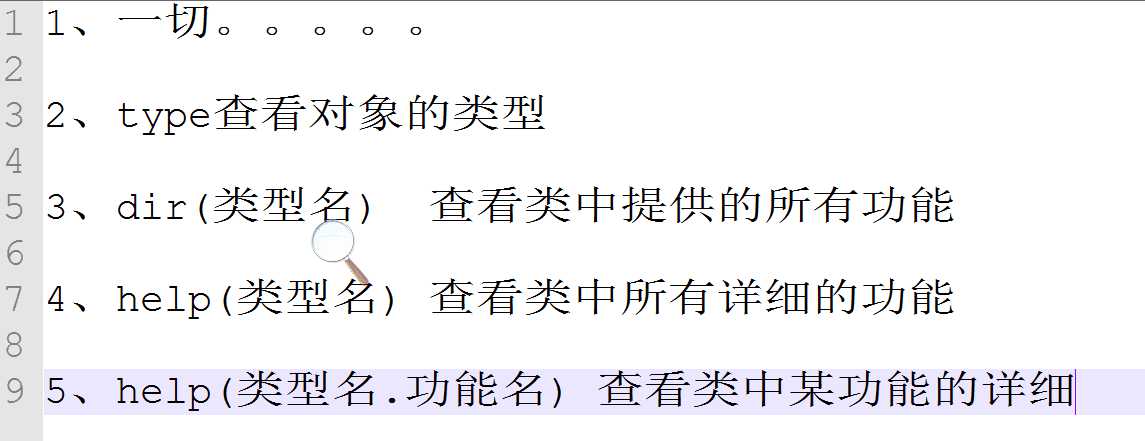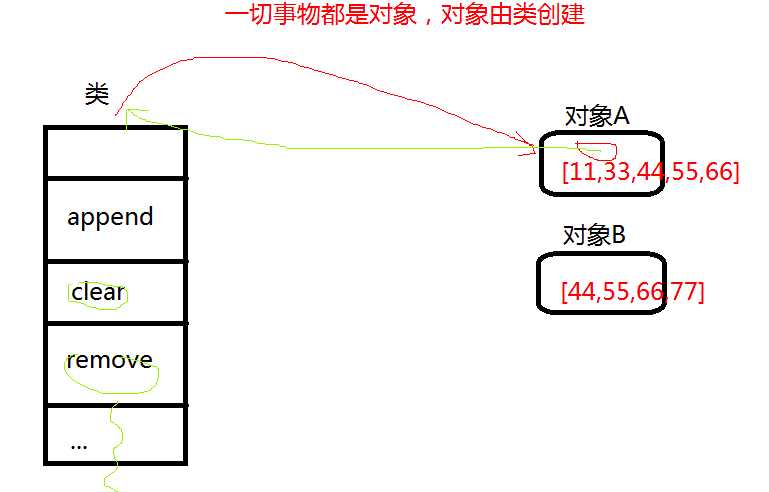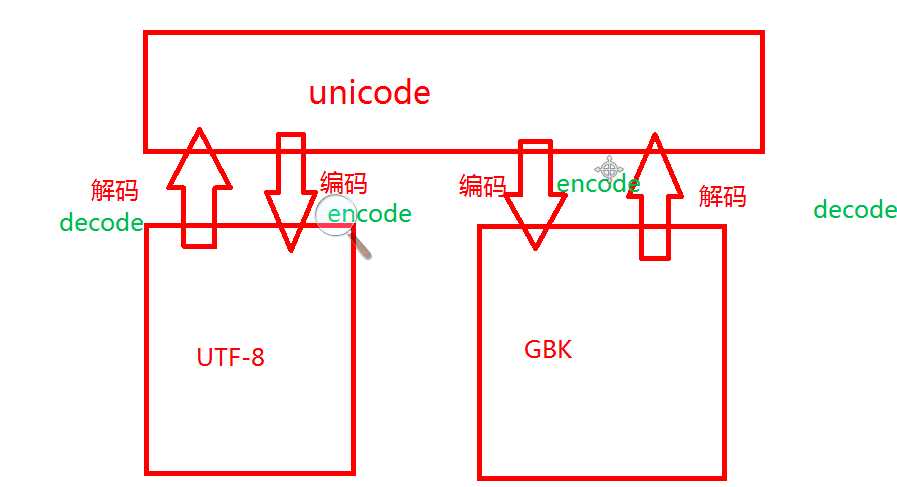标签:
关于变量:python变量只要在内存里存在,就能使用。
三元运算也叫(三目运算),表达式如下
name = ‘hehe’ if name = "zhangsan" else "lisi"
Python所有一切都是对象,是通过类创建的。对象包含类对象指针,找到类从而得到功能(方法)
得到类型
type(类型名)
dir(类型名) 得到类型名,查看类中提供的所有功能
help(类型名)查看全部功能用法


带有两个下划线的为内置方法
不带有下划线的为非内置方法
非内置方法就一种:对象.非内置方法
内置方法有一种或多种

n1 = 1
n2 = 2
n1 + n2 输出3
n1._add_(n2)
int=3
int("11",base=3)
int(‘F‘,base=16)
divmod 分页有用哦
对象能切片因为有index方法
repr和str区别
字符串
str1 = "alex"
str1 = str("alex")
class str(basestring):
"""
str(object=‘‘) -> string
Return a nice string representation of the object.
If the argument is a string, the return value is the same object.
"""
def capitalize(self):
""" 首字母变大写 """
"""
S.capitalize() -> string
Return a copy of the string S with only its first character
capitalized.
"""
return ""
def center(self, width, fillchar=None):
""" 内容居中,width:总长度;fillchar:空白处填充内容,默认无 """
"""
S.center(width[, fillchar]) -> string
Return S centered in a string of length width. Padding is
done using the specified fill character (default is a space)
"""
return ""
def count(self, sub, start=None, end=None):
""" 子序列个数 """
"""
S.count(sub[, start[, end]]) -> int
Return the number of non-overlapping occurrences of substring sub in
string S[start:end]. Optional arguments start and end are interpreted
as in slice notation.
"""
return 0
unicode===>UTF-8(编码)
UTF-8===>unicode(解码)

str.expandtabs(3):将tab转化为3个空格
str.find(a) 查找第一个出现a的下游标
format 需要传列表加*
传字典需要加**
name = " i m {0},age {1}" name.format(11,22)
li = [2222,3333]
name = " i m {0},age {1}"
name.format(*li)
name = " i m {ss},age {dd}" name.format(dd=22,ss=11)
dic = {‘ss‘: 123,‘dd‘: 456}
name = " i m {ss},age {dd}"
name.format(**dic)
mport string
intab = "aeiou"
outtab = "12345"
trantab = string.maketrans(intab, outtab)
str = "this is string example....wow!!!"
print str.translate(trantab, ‘xm‘)
index与find的区别
index找不到报错
find找不到返回-1
isalpha是否是字母
isdigit是否是数字
lower将字符串改为小写
upper将字符串改为大写
swapcase大写变小写小写变大写
replace(‘a1‘,‘b2‘) 把a1替换为b2
列表
count计数查找值出现在列表的次数
extend 列表扩展
pop 默认删除最后一个值
pop(22)删除第一个为22的
sort :进行排序哦 数字按照数值比较,字母按ascll比较 中文按照Unicode
判断变量类型
is list
is dict
is float
...
字典
dic,get(‘k2‘,‘OK‘)
字典的key只能为不可改变的值,所以列表没戏了,但是元祖啊、时间啊都可以但是你最好别用
。推荐用字符、数字、类的实例
字典循环
setdefaul(745,[‘呵呵‘])t:存在返回值,不存在创建
for k in dict :print V[K]
潜copy只能copy第一层
深copy得用copy模块
set做成集合去重
交集
并集
补集
父级
子集
标签:
原文地址:http://www.cnblogs.com/lige-python/p/4943930.html